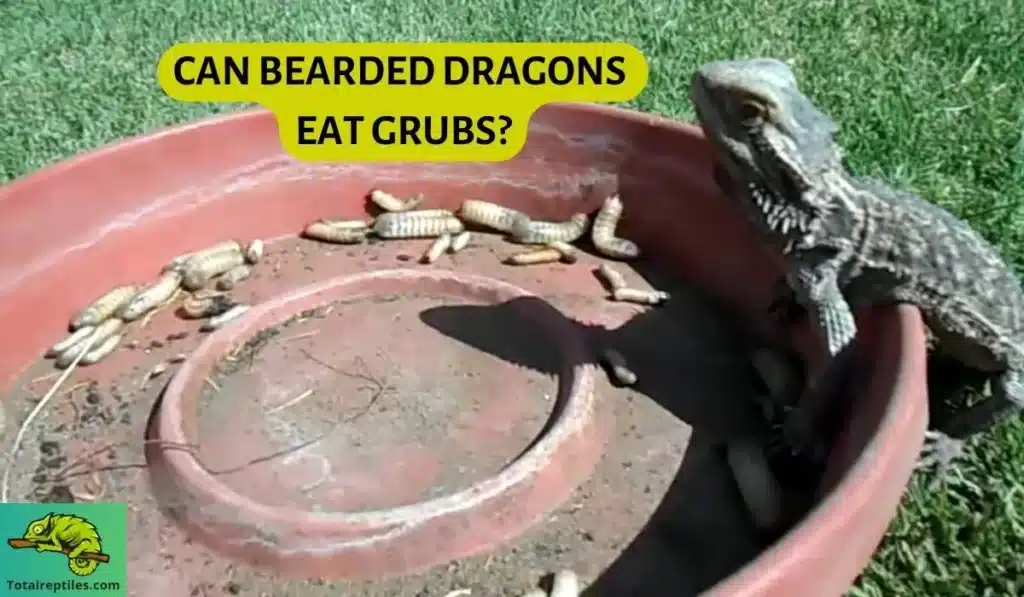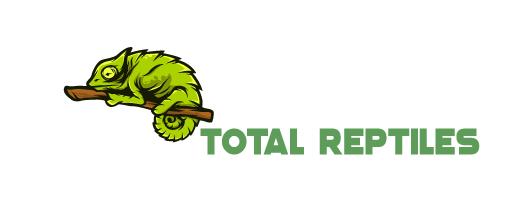Grub worms look disgustingly plump when gathered in a handful for a particular pet group. Does it include the cute beardies?
In short, can bearded dragons eat grubs?
Grubs offer a superb protein source for captive dragons. Think of them as comfort snacks for healthy development and strength. Yet, they are not ideal as primary meals to serve regularly due to their excess fat content.
While grubs can be a part of the balanced diet of a dragon, you should take certain precautions when introducing them. This guide discusses the importance of grub worms after conducting various research studies.

Can Bearded Dragons Eat Grubs?
To answer the query, understand what grub worms (Phyllophaga) are. They are the larval stages of various beetle types usually found around the grassroots.
Grub worms are white with a soft texture. They are voracious eaters despite their small size.
Now, can bearded dragons eat grubs and stomach these without any concerns?
Grubworms are one of the many insect materials that bearded dragons enjoy. They are appetizing and fulfilling, with remarkable nutritional value.
However, they are considered more of an infrequent snack than a staple.
Benefits Of Grubs For Bearded Dragons:
The overall nutritional value serves greatly for the well-being of your pet. A baby beardie or juvenile becomes quite an aggressive and energetic creature before stepping into adulthood.
Grub worms can help it gain the needed energy to grow stably throughout the stage.
Here are other noteworthy benefits to look at:
- It ensures a balanced diet for protein-deprived dragons.
- Proper blood circulation is achieved due to calcium support.
- It also maintains the excellent development and strengthening of bone and tooth structure.
- Calcium also enables the proper functioning of the pet’s nervous system.
- Your beardie will be able to heal quickly from injuries thanks to the phosphorus content that repairs body tissues and cells.
- The high protein content is responsible for regulating hormone production.
- The dragons will be boosted with energy as the carbohydrates in grubworms are broken down into sugars.
Nutritional Content of Grubs:
Through our deep dive into this subject, we discovered that grubworms offer nutritionally rich sources of micro- and macronutrients. These are crucial for high-nutrient diets.
As a result, a growing beardie (juvenile) will benefit immensely from these intermittent snacks.
| Grub Worms Nutrient Composition | g/100g DM |
| Energy (Kcal) | 509.78 ± 12.3 |
| Moisture | 7.05 ± 2.11 |
| Crude Protein | 49.16 ± 0.13 |
| Crude Fat | 26.34 ± 1.02 |
| Crude Fiber | 2.09 ± 0.12 |
| Ash | 5.48 ± 1.22 |
| NFE (nitrogen-free extracts) | 19.02 ± 1.00 |
Furthermore, grubworms contain fatty acids, amino acids, and a number of vital minerals (magnesium, zinc, copper, iron, calcium, phosphorus, manganese, etc.).
Risks of Feeding Grubs to Bearded Dragons:
While grubs are not without rewards, they are not free from downsides either. We advise you to read this section to prevent potential illnesses in your reptile buddy.
- Excessive grub feeding will lead to weight-related ailments alongside obesity, despite it being a favored treat for dragons.
- It can trigger other illnesses like gut blockage (impaction) in juveniles and baby dragons.
- Some grubs can contain parasites or bacteria, causing life-threatening illnesses in your beardie.
- Grub worms from the outdoors are most likely to contain toxic elements. Feeding them to your pet can even kill them.
How to Feed Grubs to Bearded Dragons?
Feeding grubs to a bearded dragon is pretty straightforward, whether mature or juvenile. Below is a suitable array of ideas provided for the new owners:
- Always keep in mind that grubs are rare treats, not regular meal items.
- Please make sure they are fresh and clean.
- We advise squishing them a little before offering. It averts possible choking hazards or impaction.
- You can cut them up into small bite-sized pieces for smooth digestion if necessary.
- Follow the dragon’s space between the eyes to know whether the grubs are large or sufficiently small.
- Give 2 to 3 grubs directly to your pet to see how it reacts. Take things slow and observe before feeding another grub.
Can Bearded Dragons Eat Nutri Grubs?
Yes, they are, in fact, known to be an amazing staple feeder for your favorite reptile friend. Nutri grubs are mainly black soldier fly larvae, or BSFLs, that offer abundant nutrients.
We recommend obtaining them from a reliable reptile pet store for high-end quality.
| Nutri Grubs Nutritional Composition | Approximation (%) |
| Moisture | 61.2 |
| Protein | 17.5 |
| Fat | 14.0 |
| Ash | 3.5 |
| Fiber | 3.0 |
Conclusion
So, can bearded dragons eat grubs effortlessly? You can confidently serve this item to your pet. However, serve these grubs only occasionally and in limited quantities.
Remember that their fat content is beyond the recommended level to consider them a primary meal.
Bearded dragons love varied diets, both in captivity and in the wild. Hence, it is up to us to deliver that unique flavor to their taste buds to bring about a change in regularity.
Grub titbits are an excellent source of protein and minerals, making them healthy snacks for many reptile pets; we hope yours enjoys them as well!
References
- Solomon, Mariam D., et al. “Nutrient Potential and Economic Benefit of Varies Coleoptera (Grub Worm): Implication for Food Security.” EAS Journal of Nutrition and Food Sciences 2.5 (2020)

